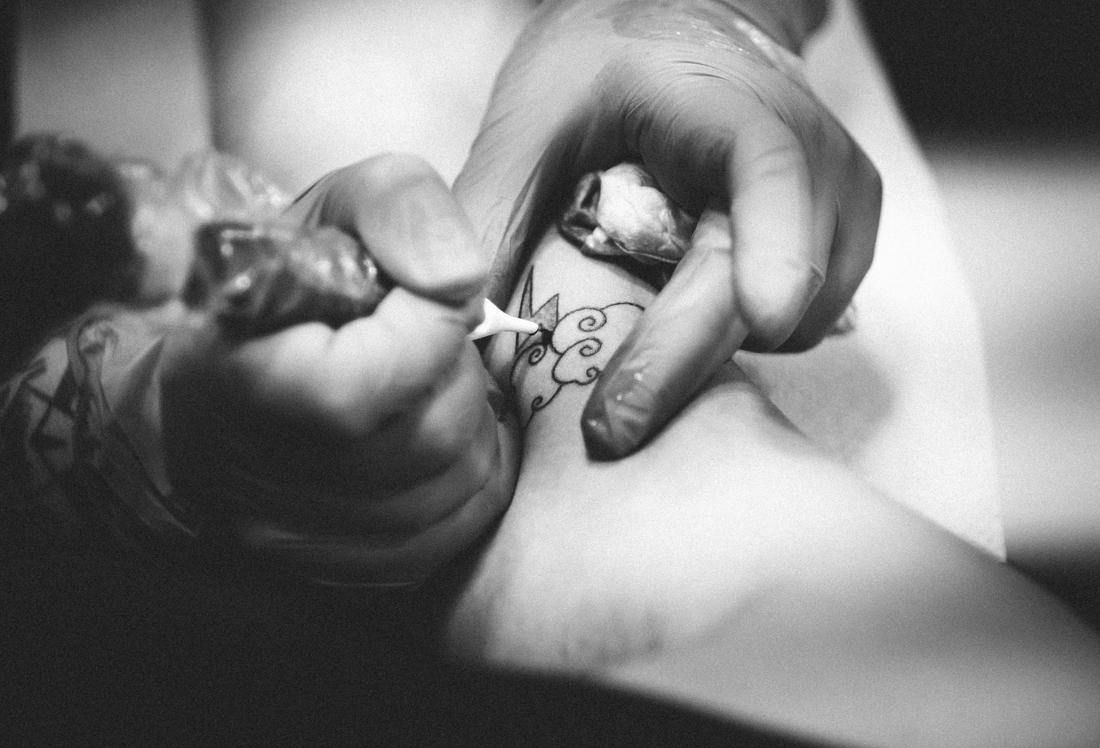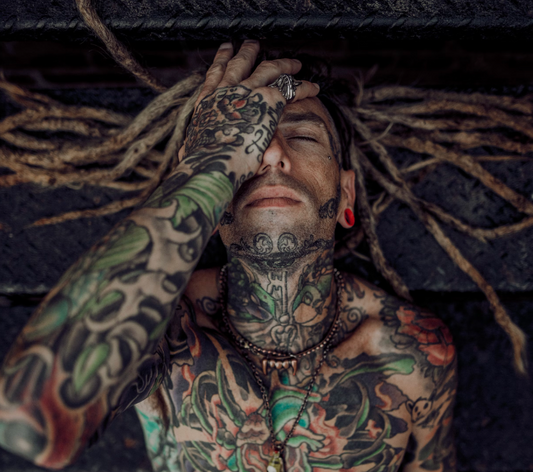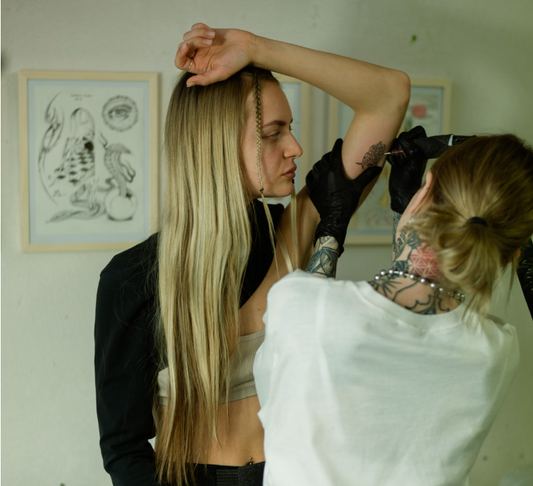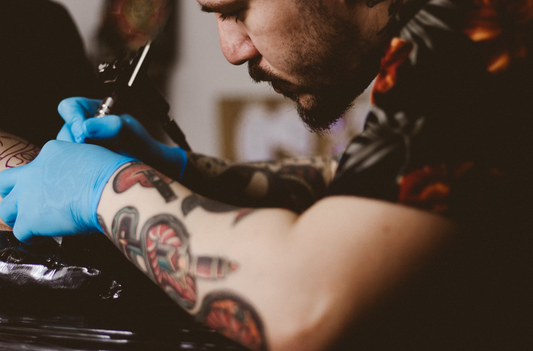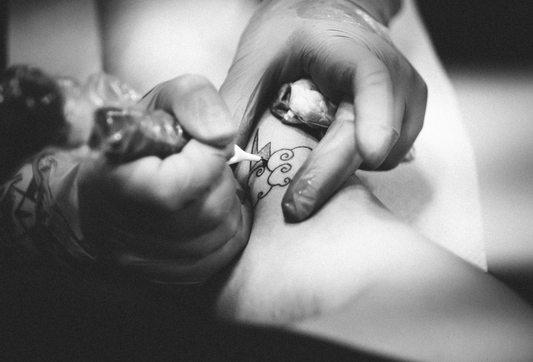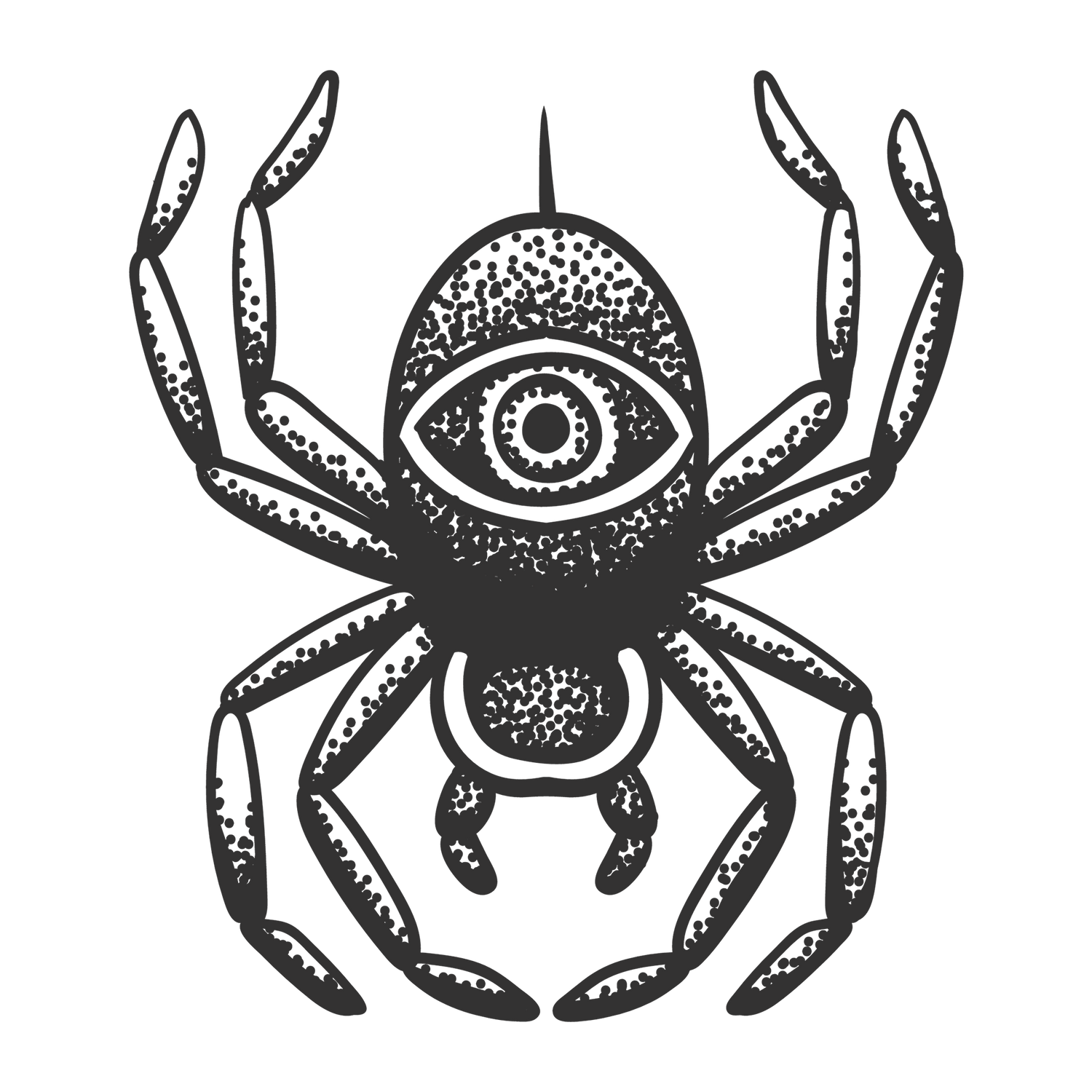Getting a tattoo is an exciting experience, but it's not without its share of aftercare challenges. One common question that pops up after you've gotten inked is, "How long do tattoos itch?" It's a crucial part of the healing process, yet it can be quite bothersome if you're not prepared.
The itching phase is a sign that your body is healing, but knowing what to expect can make the experience less daunting. In the following paragraphs, we'll dive into the typical duration of tattoo itching and offer some tips to help you manage this phase more comfortably. Whether you're a tattoo newbie or a seasoned ink enthusiast, understanding the healing process is key to ensuring your new artwork looks its best.
Factors that affect the duration of tattoo itching
When dealing with the itchiness a new tattoo can cause, it's important to understand that several factors can influence how long this phase lasts. Knowing these factors can help you better manage the itching and promote faster healing.
Location of the Tattoo
The location of your tattoo plays a crucial role in determining how much and how long the area will itch. Tattoos on more sensitive areas of the body, such as the ribs, feet, or elbows, tend to itch more intensely and for longer periods. These areas are more prone to movement and friction, which can exacerbate the itching sensation.
Size and Detail of the Tattoo
It's not just about where your tattoo is, but also how big and detailed it is. Larger tattoos with more intricate designs require more time to heal, consequently extending the itching period. The more ink used, the more your skin needs to recover, leading to potentially longer bouts of itchiness.
Your Skin Type
Your skin type is a significant factor in the healing process of a tattoo. People with sensitive or dry skin might experience more intense itching as their skin tries to heal. Knowing your skin type and how it reacts to different stimuli can help you prepare and take appropriate measures to alleviate itching.
Aftercare Routine
How you care for your tattoo can dramatically affect the duration of the itchiness. Proper aftercare is essential for a smooth healing process. Keeping the tattoo clean and moisturized helps in preventing excessive dryness and irritation, which in turn minimizes itching. Neglecting aftercare or using inappropriate products can worsen the itching and even prolong it.
Understanding these factors gives you an edge in managing the itching associated with a new tattoo. By considering the location, size, your skin type, and how you perform aftercare, you can take steps to ensure a more comfortable healing period.
How long does tattoo itching typically last?
When you get a tattoo, itching is a natural part of the healing process, but how long should you expect this sensation to last? Generally, tattoo itching can range from a few days to two weeks, depending on various factors like the tattoo's size, complexity, location, and your skin's sensitivity.
During the initial healing phase, your tattoo will go through several stages. The first few days involve swelling, redness, and some discomfort, during which itching might not be your primary concern. However, as the tattoo starts to heal and skin begins to regenerate, itching becomes more noticeable. This is a sign that your body is doing what it's supposed to do: heal.
Here's a quick rundown of what to expect during the healing timeline:
|
Healing Stage |
Description |
Itching Intensity
|
|---|---|---|
|
Days 1-3 |
Initial swelling and redness |
Low to None |
|
Days 4-14 |
Peeling and itching begin |
Moderate to High |
|
After 2 Weeks |
Itching subsides as healing progresses |
Decreases significantly |
To manage itching effectively, you'll need to resist the urge to scratch your new tattoo. Scratching can lead to infection, damage to the tattoo design, and even scarring. Instead, focus on keeping the tattoo clean and moisturized. Gentle, fragrance-free lotions or specific tattoo aftercare products are your best friends during this time.
Remember, every person's skin reacts differently, and while two weeks is a standard benchmark, your experience may vary slightly. Paying attention to how your skin heals and adhering to your tattoo artist's aftercare instructions will help ensure your tattoo heals beautifully with minimal discomfort. If you notice signs of excessive swelling, redness, or pain, it's essential to consult with your tattoo artist or a healthcare provider to rule out any complications.
Tips for managing tattoo itching
When you're navigating the tricky waters of tattoo aftercare, managing itching is paramount. It's vital to know the right techniques to keep discomfort at a minimum while ensuring your tattoo heals beautifully. Here are some effective strategies:
- Keep It Moisturized: Regularly applying a thin layer of fragrance-free moisturizer or tattoo-specific aftercare product can significantly reduce itching. This keeps the skin hydrated and less prone to flaking.
- Wear Loose Clothing: Tight clothing can irritate your new tattoo, increasing the itching sensation. Opt for loose, breathable fabrics that don't rub against your tattoo.
- Cold Compress: Applying a clean, damp cloth that’s been chilled in the refrigerator (not freezer) can offer immediate, albeit temporary, relief from itching.
- Stay Hydrated: Drinking plenty of water helps your skin heal faster and remain hydrated, potentially reducing itchiness.
- Avoid Scratching: This can't be stressed enough. Scratching not only risks infection but can also damage the intricate design of your tattoo. If you must touch the area, gently pat it.
- Refrain From Picking: As your tattoo heals, it will scab and peel. Picking at it can remove the ink from your skin, affecting the tattoo's appearance.
Remember, if you're experiencing extreme or prolonged itching, it may be a sign of an allergic reaction or infection. In such cases, it's crucial to seek advice from your tattoo artist or a healthcare professional.
Understanding and executing proper aftercare routines will go a long way in ensuring that your tattoo heals well, and you get through the itching phase with as little discomfort as possible. By following the recommended practices, you're not only safeguarding your skin's health but also preserving the aesthetic quality of your new artwork.
When should you be concerned about tattoo itching?
Tattoo itching is a normal part of the healing process, but there are times when it could signal something more serious. Recognizing the signs that differentiate normal itching from potential issues can save you from complications and ensure your tattoo heals perfectly.
Excessive Redness or Swelling should not be ignored. While some redness and swelling are typical in the first few days, if these symptoms persist or worsen, it could indicate an infection. Tattoos that become increasingly painful, rather than gradually improving, need immediate attention from a professional.
Discharge is another red flag. A healthy healing tattoo might ooze a little clear plasma – that's normal. However, if you notice green, yellow, or thick discharge, especially accompanied by a foul smell, these are signs of a possible infection. An infected tattoo will often be warm to the touch as well.
Here are a few more symptoms that should prompt a visit to your artist or a healthcare provider:
- Persistent itching that doesn't improve with moisturizing or cool compresses
- Rash or bumps around the tattoo, which might indicate an allergic reaction
- Fever or chills indicating your body is fighting an infection
|
Condition |
Signs & Symptoms |
Action Required
|
|---|---|---|
|
Normal Healing |
Mild itching, light peeling |
Maintain aftercare routine |
|
Infection |
Increased pain, redness, swelling, discharge |
Seek medical attention |
|
Allergic Reaction |
Rash, bumps, severe itching |
Consult with a tattoo artist/doctor |
It's crucial to trust your instincts. If something feels off about your tattoo's healing process, it's better to err on the side of caution. Early intervention can prevent more serious complications and help preserve the integrity of your tattoo design. Additionally, ensuring you're following your tattoo artist's aftercare instructions can significantly reduce the risk of issues.
Conclusion
Tattoo itching is a common part of the healing process but knowing how to manage it effectively can make a big difference in your comfort and the tattoo's outcome. Remember to keep the area moisturized, wear loose clothing, and use cold compresses for relief. It's critical to avoid scratching or picking at your new ink to prevent any damage or infection. If you notice signs of excessive redness, swelling, discharge, or if the itching becomes unbearable despite your best efforts, don't hesitate to seek medical advice. Your tattoo is not just an art piece but a commitment to aftercare that ensures its beauty and longevity. Trust your instincts and always follow the aftercare instructions provided by your tattoo artist to keep your skin healthy and your tattoo looking its best.
Frequently Asked Questions
What causes tattoo itching during the healing process?
Tattoo itching is often caused by the natural healing process of the skin. As the tattoo heals, the skin may become dry and start to peel, leading to an itchy sensation. Using fragrance-free lotions or tattoo-specific aftercare products can help keep the area moist and reduce itching.
Can wearing certain types of clothing affect tattoo itching?
Yes, wearing tight or abrasive clothing can irritate the healing tattoo, exacerbating the itching. It's recommended to wear loose, breathable clothing that doesn't rub against the tattoo to help minimize irritation and discomfort.
How can I relieve tattoo itching?
Applying a cold compress can provide temporary relief from itching. Additionally, keeping the tattoo moisturized with appropriate aftercare products is essential. Avoid scratching or picking at the tattoo to prevent infection and damage to the design.
When should tattoo itching be a cause for concern?
Tattoo itching should be a cause for concern if accompanied by excessive redness or swelling, discharge, persistent itching that doesn't improve with aftercare measures, rash or bumps around the tattoo, and fever or chills. These symptoms could indicate an infection or allergic reaction, necessitating medical attention.
Should I seek professional advice for tattoo itching?
Yes, if you experience extreme or prolonged itching, especially with symptoms like excessive redness, swelling, discharge, rash, or fever, it's crucial to seek professional advice. This may be a sign of an allergic reaction or infection that requires medical treatment to prevent complications and preserve the tattoo's integrity.

